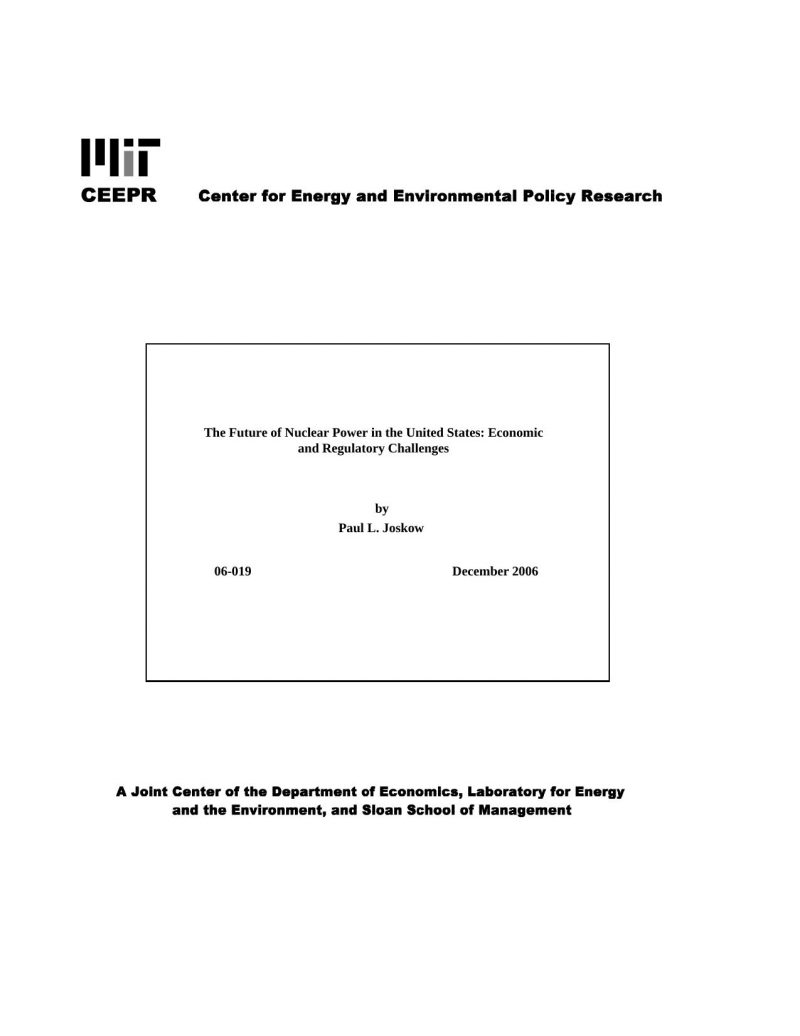The Future of Nuclear Power in the United States: Economic and Regulatory Challenges
Paul L. Joskow
06-Dec
This paper examines the economic and regulatory challenges that must be faced by potential investors in new nuclear power plants in the United States. The historical development of the existing fleet of over 100 nuclear plants and their recent performance history are discussed. The pattern of re-licensing of existing plants and the implications for the role of the extended operation of the existing fleet in the overall electricity supply portfolio over the next 50 years is examined. The economic competitiveness of investments in new nuclear power plants compared to investments in alternative base load technologies is discussed under a variety of assumptions about construction costs, fuel costs, competitive and economic regulatory environments and various levels of carbon emissions prices affected competing fossil-fueled technologies. Federal government efforts to facilitate investment in new nuclear power plants, including streamlined licensing procedures and financial incentive provided by the Energy Policy Act of 2005 are discussed. These regulatory changes and financial incentives improve the economic competitiveness of nuclear power. First mover plants that can benefit from federal financial incentives are most likely to be built in states that continue to regulate generating plants based on cost-of-service principles, transferring construction cost and operating performance risks to consumers, and where there is room on existing sites to build additional nuclear capacity. Once federal financial incentives come to an end lower and more stable construction costs combined with carbon emissions charges are likely to be necessary to make investments in new nuclear plants significantly more attractive than investments in pulverized coal plants. Unresolved waste disposal policies and local opposition to new nuclear plants are likely to represent barriers to investment in new nuclear power plants in some areas of the country.



